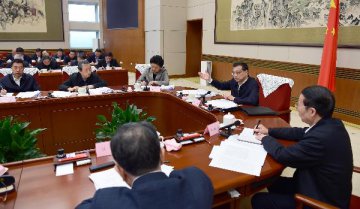
For China econ specialists, a favorite pastime is trying to figure out by how much China’s official growth numbers are juiced. Beijing reported that GDP grew 6.6% in 2018, low enough by Chinese standards to fan fears of unemployment. But that level of economic growth would be cause for jubilation in any other major economy.
What gives?
Last week, four China specialists published a paper arguing that China’s growth since 2008 has been about 1.7 percentage points lower annually than reported. In other words, the economic slowdown has been a lot steeper than Beijing reported. The economists—Chang-Tai Hsieh of the University of Chicago and Zheng Song, Wei Chen and Xilu Chen of Chinese University of Hong Kong—did two main tests of the official data.
First, they examined the GDP numbers reported by provinces and compared them with the central government’s National Bureau of Statistics calculations. The NBS figure was significantly lower than the provincial numbers would suggest. That has been the case since 2002. But did NBS make sufficient corrections for local bureaucrats whose promotion is largely tied to the economic performance of their localities? Second, they looked at alternative measures for components of GDP and, relying on information from value-added taxes, calculated that NBS was overoptimistic.
But why? What happened in 2008, when the economists say NBS started significantly overestimating growth? And what happened in 2013, when the variance became especially large?
Those questions weren’t the subject of the paper. But an interview with the University of Chicago’s Mr. Hsieh adds some political analysis to the economic data. In 2008, with the global economy collapsing, China put in place a massive spending and lending program that saved the country from the depth of the downturn. The political imperative then—and the pressure on NBS, Mr. Hsieh says—was to show the strength of the Chinese economy, as reflected in GDP growth. (China reported 9.4% GDP growth in 2009, for instance; the economists say it was actually 8%.)
In 2013, Xi Jinping added the title of president to his real source of power, chairman of the Communist Party, and launched a vast drive against corruption. In a paper published a month ago, Mr. Hsieh, Mr. Song and Chong-en Bai of Tsinghua University, showed how that effort made local officials wary of signing investment deals.
“There are many accounts that the corruption crackdown has diminished the willingness of local officials to help local businesses,” they wrote. “This could be because their main incentive was the monetary payoff, or it could be the fear of being accused of receiving a payoff.”
That jibes with the recent Mr. Hsieh’s recent paper on slackening GDP. The authors find that NBS mainly failed to capture a lower level of investment.
Mr. Hsieh says that provincial governors or party secretaries, who are judged by their ability to promote growth and investment, are often more politically powerful than Beijing bureaucrats who comb through economic data. “What happens when chairman of NBS comes into conflict with party secretary of Shanghai or Beijing?” he asks. “Who is going to win the battle?
Source: The Wall Street Journal






















Latest comments